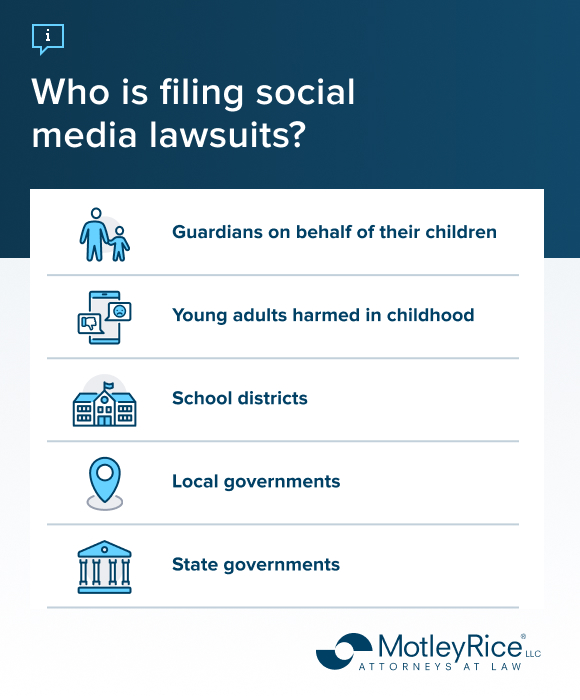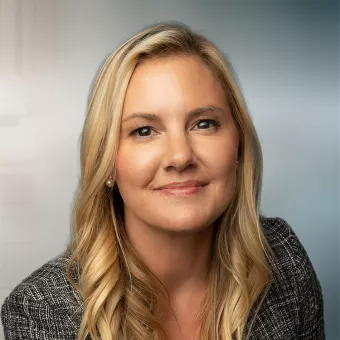Is there a social media class action lawsuit?
There is currently no large class action lawsuit against social media companies regarding mental health and compulsive use. People experiencing these harms have filed individual lawsuits consolidated in multidistrict litigation.
Most other social media mental health cases are individual lawsuits consolidated into the federal multidistrict litigation.
What social media sites are being sued?
The parent companies of Instagram, Facebook, TikTok, Snapchat and YouTube are the primary defendants in social media harm lawsuits.
Defendants include:
- ByteDance Ltd. (TikTok)
- Google LLC (YouTube)
- Meta Platforms, Inc. (Instagram and Facebook)
- Snap, Inc. (Snapchat)
Who can file a social media harm lawsuit?
Parents or guardians can file a lawsuit against social media companies on behalf of their children or their children's estates. Adults can also file a lawsuit if they were minors when their trauma was diagnosed or treated. School Districts and state attorneys general can also take legal action.
If you have another type of lawsuit involving social media (scams, stolen content, or experiencing mental health harm as an adult), your claim is not eligible for inclusion in the current litigation.
To file a lawsuit, people must demonstrate that social media caused or worsened the victim’s mental or physical health issues. You can contact a Motley Rice social media attorney to learn more and see if you qualify for a lawsuit. Our attorneys have been handling these calls for over two years and are trained to handle calls with this type of sensitive and painful information.
What can social media be sued for?
Social media may be a part of many types of lawsuits. Many lawsuits claim that too much time on social media can be the source of many mental health issues, including anxiety, body dysmorphia, depression, eating disorders, low self-esteem, self-harm, suicide and more.
Additionally, social media companies may face lawsuits for civil liability depending on the type of injury kids and their families suffer. The 3rd U.S. Circuit Court of Appeals recently decided that TikTok and its parent company, ByteDance, could be held accountable for the algorithm that pushed harmful content to a minor child resulting in her death.
How does Section 230 affect social media?
Section 230 of the 1996 Communications Decency Act protects social media companies from being held responsible for content published on their platforms by users. It states, “no provider or user of an interactive computer service shall be treated as the publisher or speaker of any information provided by another information content provider.”
Section 230 means that social media companies cannot be held liable for inappropriate or harmful content or cyberbullying. However, the social media harm lawsuits in which Motley Rice is representing clients are not centered around harmful content from other users. Rather, they place the blame on the harmful design of the social media apps.
Courts have issued mixed rulings on this, with some allowing cases against TikTok and Meta to proceed. However, as of March 2025, Section 230 protections for social media companies still apply in the social media harm MDL.





